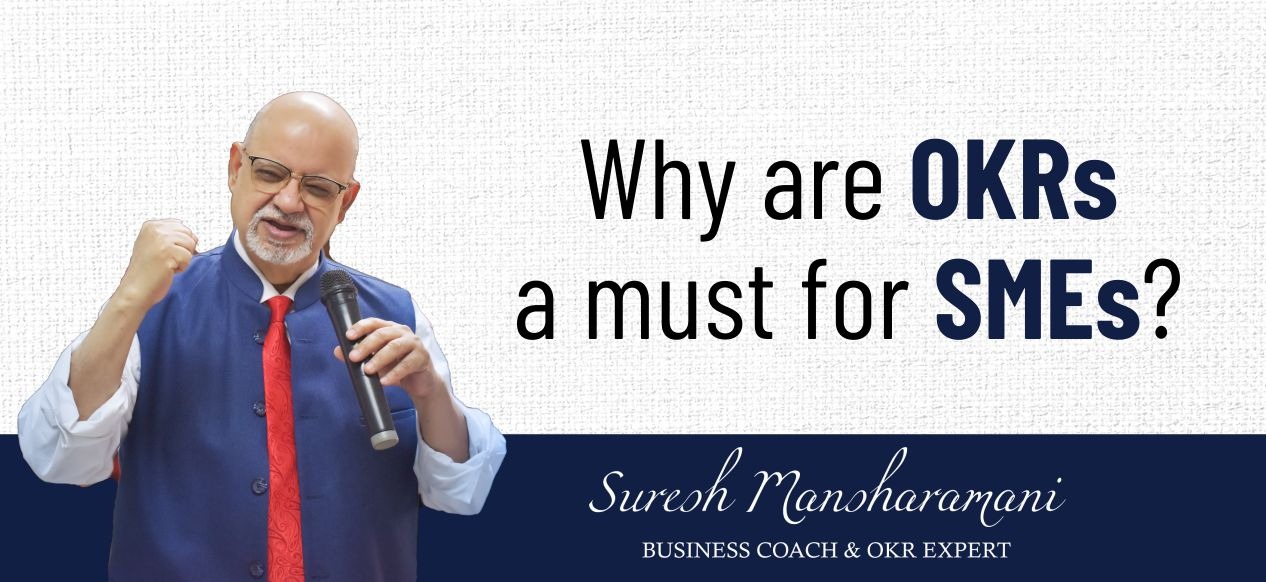
Why Are OKRs a Must For SMEs?
Forget the US-based Silicon Valley companies, OKRs (Objectives and Key Results) work for Indian SMEs too – and some might say they need it more than the big-guns.
It’s a little-known fact that the backbone of the Indian economy isn’t the large multinationals or Silicon Valley’s UK offshoots like Facebook, Google, Twitter or Instagram. It’s good old-fashioned small businesses.
OKR Coach in India puts forth some interesting facts that a staggering 95% of all businesses in India are SMEs – or small to medium-sized enterprises – and collectively they employ 40% of our working population, contributing to around half of the private sector’s total turnover. While they can technically be as large as 250 staff, most (99.3%), employ 1-49 staff, but the reality is that the vast majority are actually much, much smaller still, employing just 0-9 staff.
Micro In Name, But Not Ambition
Suresh Mansharamani, the best OKR coach in India comments that these so-called micro-businesses – and on paper, they don’t exactly seem like the ideal candidates for embracing technology-driven performance such as OKRs. After all, these are organisations that can house their entire staff in a single room; where the boss will probably know them personally, and where any weak links in the chain can easily be seen. Surely performance systems only come into their own where people aren’t so visible, and projects and goals are far more complex?
But that’s where SMEs might possibly be going wrong. The assumption that SME entrepreneurs are inherently ‘on-top’ of things – including staff productivity – can sometimes be just an assumption. It’s a fact that a staggering 20% of SMEs actually fail in their first year; 30% fail in year two, and 50% fail after five years. And according to research from the US at least, more than 80% of small business owners confess to not tracking their company goals.
Falling Into The ‘Not For Us’ Trap
It’s not that small business owners are necessarily more cavalier, or that they don’t care about their longevity as much. While providing OKR Coaching to his SME clients, Suresh points out that small business owners probably fall into the trap of thinking OKR is ‘not for them’ and that ‘it’s what tech or other large companies do’. The fact of the matter though, is that when company owners do set specific goals, they have a 95% chance of achieving them, and not only that, employees have a better chance of understanding them.
OKRs Give Back Control
As per the Okr Coach, the people who create SMEs – are more likely to be ‘ideas’ people rather than ‘do-ers’, and actually struggle with balancing the day to day administration with managing the business. Data also finds they are somewhat reluctant to fully trust their management team with critical tasks and often prefer to take on all responsibilities themselves.
OKRs Give Back Control
Top OKR coach enunciates the reasons why a goals-based technology platform could be just what SME owners need. Not only can they themselves clearly set out an OKR-based approach to achieving and reflecting on performance (with all the red-flag warnings and dashboard measures this entails), but it puts owners back in control. It lets owners set the outcomes they want, while also giving staff the direction they crave. Remember, just because an employee works for an SME, it doesn’t mean they have any less requirement for knowing how they’re performing, what contribution they’re making to the business, or where their career will go next. Some 70% of employees,mostly SME employees, would still quit a firm and join another with better career development.
So, while it might be the case that Silicon Valley firms always grab the media limelight when it comes to tech-based solutions that transform goal-setting and productivity and engagement gains, the real opportunity is actually with ordinary small firms. Because by using technology, these ordinary firms might just be capable of producing extraordinary outcomes.

Author